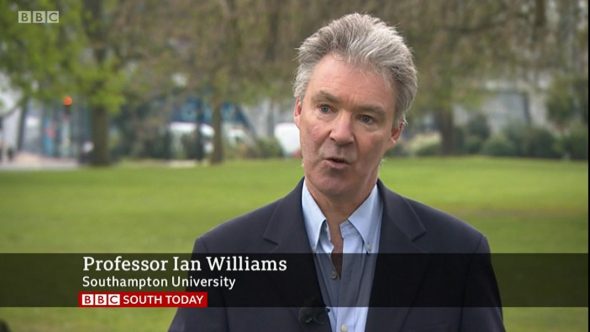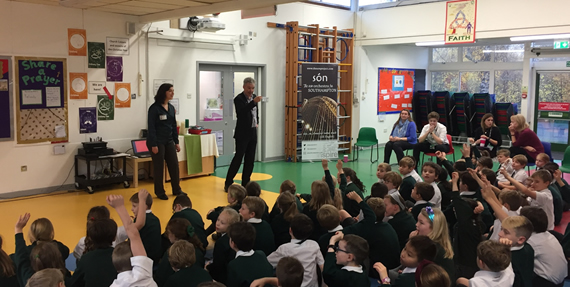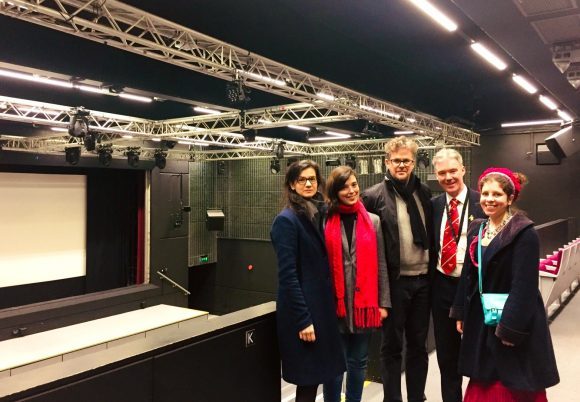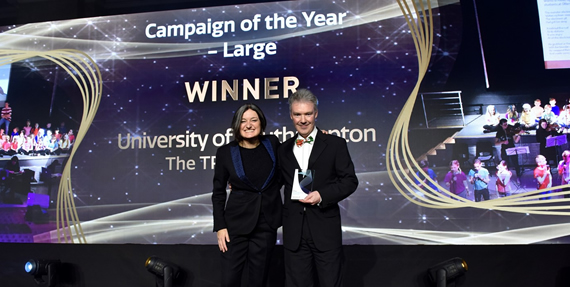My Journey: Five decades as an Environmental Scientist by Professor Ian Williams

In the second blog in our series prior to the 50th anniversary of Environmental Science (ES), we hear from Ian Williams, Professor in Applied Environmental Science.
I’ve been a professional environmental scientist since the 1980s. I suppose I’m a “veteran” now, covered in lichens, grey hair and chalk dust. I chose this career because I was youthfully determined to help end pollution from terrible events such as the Bhopal (1984) and Chernobyl (1986) disasters, the Castillo de Bellver and Exxon Valdez (1989) oil spills, depletion of the ozone layer and urban air pollution from road traffic.
When I started out, I was mocked by practically everyone I know (except my close family). “Tree hugger”, “lentil-eater”, “eco-nut” and “green-freak” are the few I can mention in a family friendly blog. Throughout my career, I have been told that I am idealistic, unrealistic, reactionary, naïve, anti-progress, sanctimonious, hypocritical, full of cognitive dissonance, liberal, angry, and so on. I think these are easy slurs, designed to be both dismissive of my skills and to continue the narrative that environmental scientists operate to a lower standard than other scientists and engineers. And I’m not alone of course; my experiences pale into insignificance compared to the astonishing abuse thrown daily at people like Greta Thunberg and Chris Packham simply because they argue we should use hard-won, peer-reviewed, objective evidence to promote an environmentally-friendly world.

In reality, despite working like a Trojan and with a fierce passion, I sometimes feel I’ve made practically zero impact. I should be depressed by this. And sometimes I do get a bit down about society’s general direction of travel, with style often preferred over substance, “looks” preferred to capabilities, and over-consumption damaging every aspect of our world. But depressed – never. Why not?

Because “my truth” is that I have spent a lifetime gaining expertise by studying a subject in detail and working hard to produce evidence-based research that only has the best interests of society at its heart. Think about this – as a “member of the public”: when we want fruit, we trust the greengrocer. When we want a haircut, we trust the hairdresser. When we have heartburn, we trust the pharmacist. If we want a car fixed, we trust the mechanic. So when advice is needed on climate change or waste (resource) management, why don’t people trust environmental scientists and engineers?
There are theories that people acknowledge the expertise of scientists but will only “trust” them if they feel that their interests coincide. Thus if environmental scientists are presenting evidence that is perceived to require a change in lifestyle, or is perceived to threaten job security or economic interests, then they must be untrustworthy or not very good. I think this is generational behaviour and does not necessarily apply to the “youth of today”.

Over the decades of my career, I have witnessed tremendous change across the environmental sector and our wider world. I have retained an unshakeable belief in young people and their ability to change the world for the better. The core philosophical approach to all my work has centred on enabling young people to find confidence, develop their knowledge and skills, and help them make a positive contribution to society and their own well-being via active learning, inter-generational influence and partnership. And, for sure, today’s young people will do a better job at looking after the environment than my generation ever did.
So maybe I have made a difference after all?
Ian Williams, Professor of Bunny Hugging and Dustbin Studies, “Not an Engineer”.